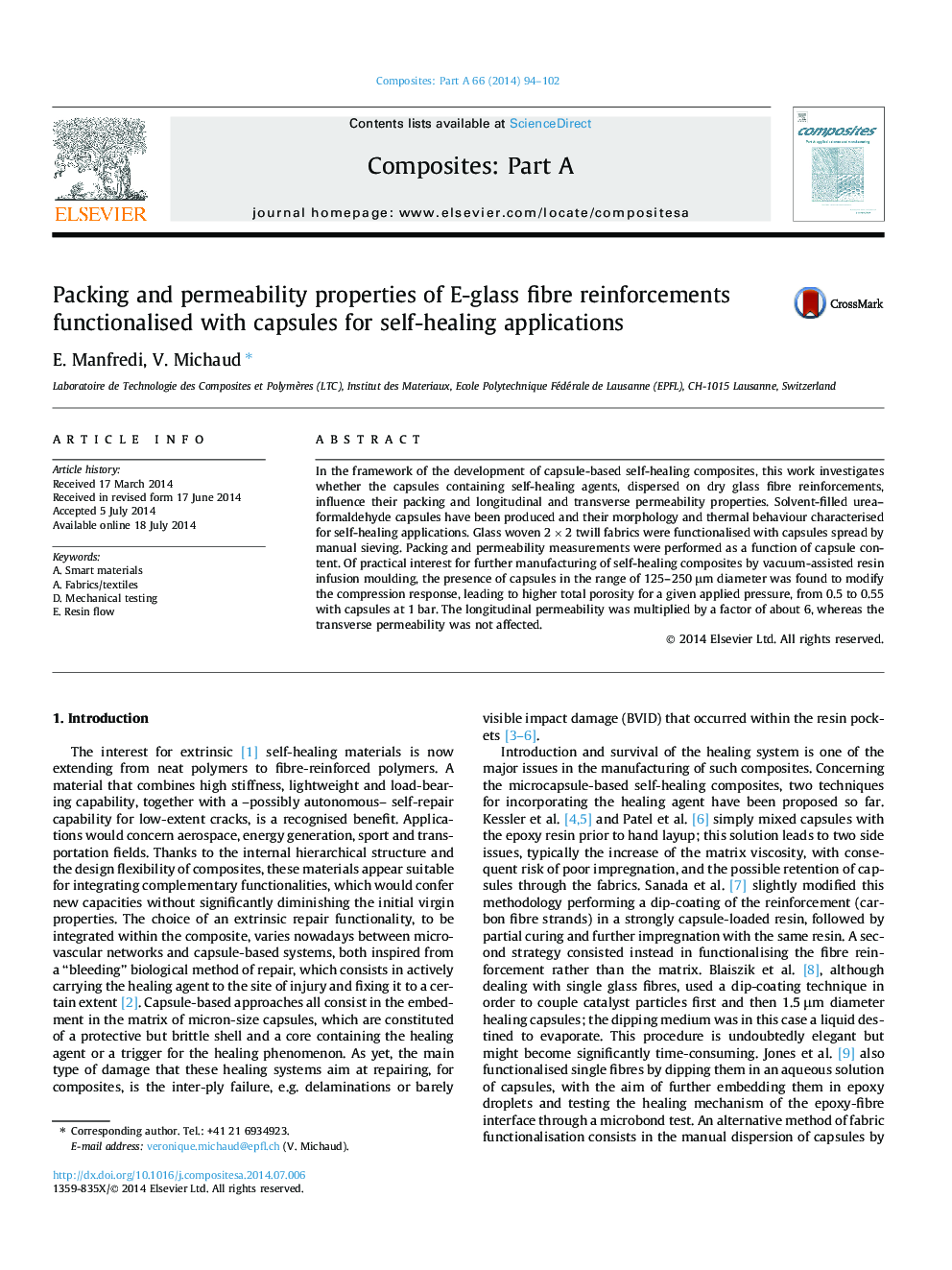| Article ID | Journal | Published Year | Pages | File Type |
|---|---|---|---|---|
| 1465956 | Composites Part A: Applied Science and Manufacturing | 2014 | 9 Pages |
Abstract
In the framework of the development of capsule-based self-healing composites, this work investigates whether the capsules containing self-healing agents, dispersed on dry glass fibre reinforcements, influence their packing and longitudinal and transverse permeability properties. Solvent-filled urea-formaldehyde capsules have been produced and their morphology and thermal behaviour characterised for self-healing applications. Glass woven 2 Ã 2 twill fabrics were functionalised with capsules spread by manual sieving. Packing and permeability measurements were performed as a function of capsule content. Of practical interest for further manufacturing of self-healing composites by vacuum-assisted resin infusion moulding, the presence of capsules in the range of 125-250 μm diameter was found to modify the compression response, leading to higher total porosity for a given applied pressure, from 0.5 to 0.55 with capsules at 1 bar. The longitudinal permeability was multiplied by a factor of about 6, whereas the transverse permeability was not affected.
Related Topics
Physical Sciences and Engineering
Materials Science
Ceramics and Composites
Authors
E. Manfredi, V. Michaud,
